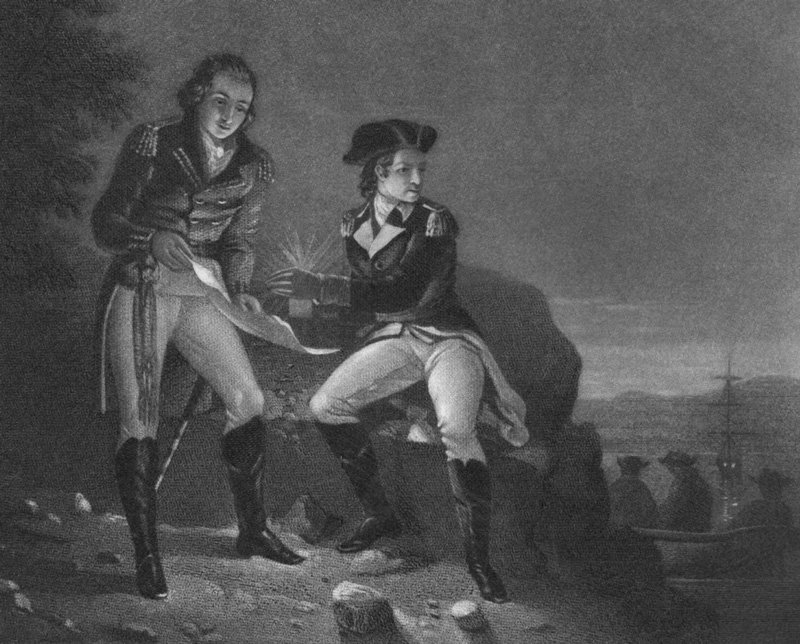Benedict Arnold (January 14, 1741 [O.S. January 3, 1740 – June 14, 1801) was an American military officer who served as a general during the American Revolutionary War, fighting for the American Continental Army before defecting to the British in 1780. George Washington had given him his fullest trust and placed him in command of the fortifications at West Point, New York. Arnold planned to surrender the fort to British forces, but the plot was discovered in September 1780 and he fled to the British. His name quickly became a byword in the United States for treason and betrayal because he led the British army in battle against the very men whom he had once commanded.
Excursus: Benedict Arnold Treason
- Arnold constantly felt mistreated by Congress and many of his commanders, especially Horatio Gates, who downplayed his role in helping win the Battle of Saratoga.
- He was also deeply in debt and loved living a lavish lifestyle.
- In June 1778, Washington appointed Arnold military commander of Philadelphia.
- There Arnold fell in love with and married Peggy Shippen, who had strong loyalist leanings.
- There Arnold likely used his position to enrich himself. He was brought before a court martial in 1779. The court martial cleared him of all but two minor charges in 1780, but Washington formally rebuked him.
- By the end of 1779, Arnold had begun secret negotiations with the British to surrender the American fort at West Point, New York (where he had been appointed the command), in return for money and a command in the British army.
- Arnold’s chief intermediary was British Major John André (1750-80). André was captured in September 1780, while crossing between British and American lines, disguised in civilian clothes.
- Papers found on André incriminated Arnold in treason. Learning of André’s capture, Arnold fled to British lines before the Patriots could arrest him. West Point remained in American hands, and Arnold only received a portion of his promised bounty. André was hanged as a spy in October 1780.
- News of Arnold’s treachery re-energized many patriots’ morale, which had sagged.
Additional Resources About Revolution and Colonies
Cite This Article
"Benedict Arnold’s Treason: Facts and Summary" History on the Net© 2000-2024, Salem Media.
July 27, 2024 <https://www.historyonthenet.com/benedict-arnold-treason>
More Citation Information.







